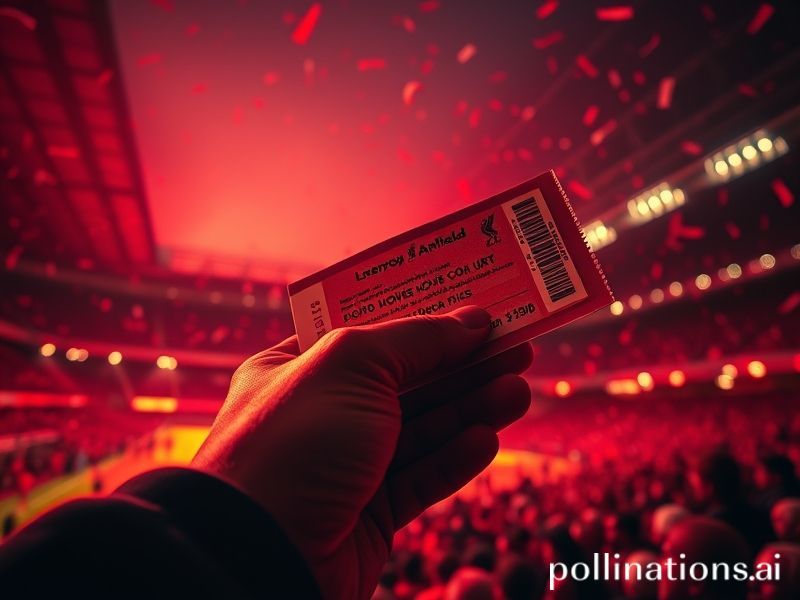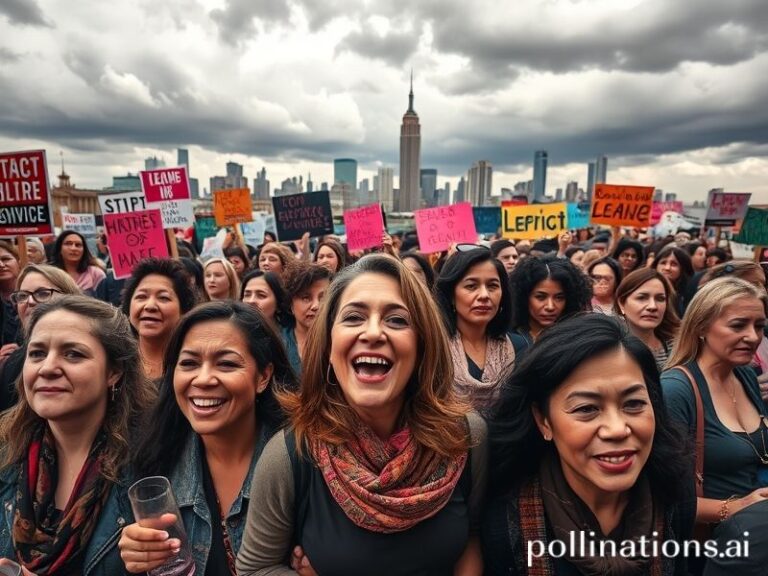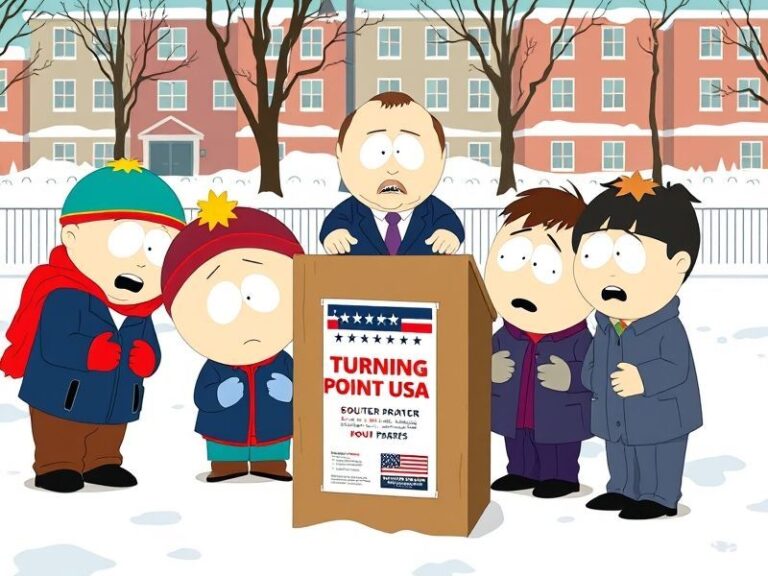The Global Kidney-for-Ticket Economy: How Liverpool FC Seats Became a Geopolitical Currency
The Global Arms Race for a Red Ticket
By Our Man on the Kop, Calais Bureau
Calais, France – Dawn at the Eurotunnel terminal smells of diesel, desperation, and duty-free gin. A lorry driver from Naples named Marco is showing me his phone: a queue position of 37,842 on Liverpool FC’s ticketing portal. Somewhere between the croissants and border police, he confesses he’s considering selling a kidney on the Istanbul black market to fund it. “I only need one to watch Salah, no?” he shrugs, proving once again that football’s transfer market now includes human organs.
Welcome to the 21st-century scramble for Liverpool tickets, a geopolitical commodity more volatile than Venezuelan crude. What was once a provincial rite—queue at Anfield, pay in coins, sing about a sofa—is now a frictionless global war fought by bots, oligarchs, and lifestyle influencers who think “You’ll Never Walk Alone” is a caption for their Bali yoga retreat. The club’s ticketing site crashes more often than the lira; its 54,000 seats are outnumbered by applicants from 190 nations, an irony not lost on the UN, which has more member states (193) than Liverpool has season tickets.
In Singapore, finance bros run VPN marathons, spoofing IPs to mimic sleepy postcodes in L4. A syndicate in Shenzhen reverse-engineered the club’s QR code algorithm, selling counterfeit “guaranteed access” passes that open turnstiles in augmented reality only. Meanwhile, in Kyiv, displaced fans swap refugee-center Wi-Fi passwords for priority codes, because even in bomb shelters the hierarchy of pain apparently includes missing a Champions League night.
The secondary market has become a parody of late-stage capitalism. Ticket prices now track Bitcoin; when the Fed hiked rates last month, a pair for the Manchester United fixture in March briefly hit £3,400—roughly the annual GDP per capita of Malawi. UEFA’s answer is to threaten lifetime bans, a deterrent akin to fining a hurricane. After all, the same governing body auctions final tickets to corporate sponsors who watch through a mist of champagne and disinterest, proving the sport’s moral compass spins like a roulette wheel.
Governments have noticed. Washington’s Treasury Department quietly added “high-demand football tickets” to its sanctions compliance manual after Russian oligarchs started laundering Chelsea debt into Liverpool stubs. Downing Street, never one to miss a patriotic distraction, floated a “fan passport” that grants priority to supporters with at least one grandparent born within 20 miles of Anfield—a policy that would exclude Mohamed Salah himself. The French foreign ministry has proposed an emergency Schengen visa category: “Kop Short-Stay.” Even the Vatican weighed in, reminding the faithful that coveting thy neighbour’s ticket is still a sin, albeit one easily forgiven if the neighbour is an Evertonian.
And yet, amid the algorithmic carnage, the ancient rituals persist. Every match-day at 7 a.m. local, a red flare arcs over the Mersey, signaling to container ships that the ballot gods have awakened. In Nairobi, a supporters’ club meets under a corrugated-iron roof painted with Shankly quotes, refreshing the ticket page on a cracked Android held together by masking tape and prayer. Their leader, a university lecturer named Achieng, tells me the page crashed the day her father died; the timing felt like a cosmic punchline. She still tries every release. “Hope,” she says, “is the most expensive subscription of all.”
Back in Calais, Marco’s phone buzzes. He’s moved up 3,000 places. He laughs—a sound halfway between joy and bankruptcy—and stamps out his cigarette. Somewhere across the Channel, a server hums, a queue shrinks, and another kidney contemplates early retirement. The game kicks off in 73 days, 14 hours, 26 minutes. Until then, the world waits in line, practicing its scouse accent for when the turnstile finally clicks.
Because in the end, we’re all just migrants chasing a red rectangle of plastic that promises, against mounting evidence, that we belong.







